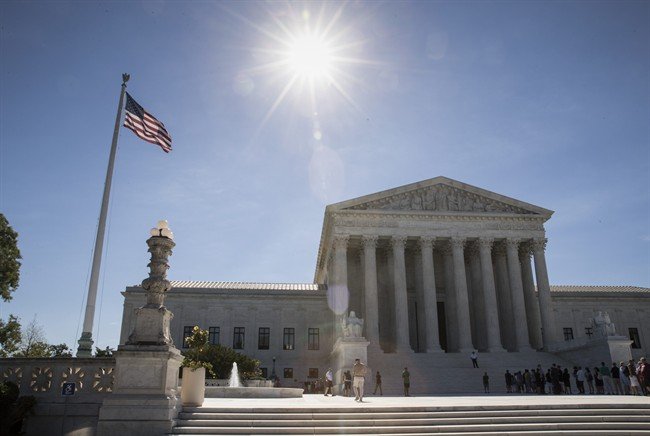[ad_1]

A federal appeals court on Monday ordered a lower court to dismiss legal challenges to President Donald Trump’s 3-year-old ban on travellers from predominantly Muslim countries, finding that a judge misinterpreted a Supreme Court ruling that found the ban has a “legitimate grounding in national security concerns.”
The ban, put in place just a week after Trump took office in January 2017, sparked an international outcry from Muslim advocates and others who said it was rooted in religious bias.
A three-judge panel of the Richmond-based 4th U.S. Circuit Court of Appeals ruled Monday that a federal judge in Maryland made a mistake when he refused to dismiss three lawsuits after the Supreme Court upheld the ban in 2018 in a separate case filed in Hawaii.
“We conclude that the district court misunderstood the import of the Supreme Court’s decision in Hawaii and the legal principles it applied,” Judge Paul Niemeyer wrote in the unanimous decision.
During a hearing in January, Mark Mosier, an attorney representing U.S. citizens and permanent residents whose relatives have been unable to enter the U.S. because of the ban, asked the court to allow the legal challenges to proceed.
Mosier argued that the Supreme Court — in the Hawaii case — rejected a preliminary injunction to block the travel ban, but did not decide the merits of the constitutional claims made in the lawsuits. The plaintiffs argued that the travel ban violates the First Amendment’s Establishment Clause, which prohibits the government from favouring one religion over another.
Mosier said the lawsuits should be allowed to proceed so the plaintiffs can gather evidence on their claim that the travel ban is rooted in anti-Muslim bias and that the Trump administration’s claim of national security concerns is a pretext for the policy.
But the three 4th Circuit judges who heard the case — all nominated by Republican presidents — repeatedly questioned Mosier about the Supreme Court’s finding that there is a plausible rationale to support the travel ban.
The ban applies to travellers from Iran, Libya, Somalia, Syria and Yemen. It also affects two non-Muslim countries, keeping out travellers from North Korea and some Venezuelan government officials and their families. In January, the administration imposed new entry restrictions — but not a total travel ban — on travellers from six additional countries, including Myanmar, Eritrea, Kyrgyzstan, Nigeria, Sudan and Tanzania.
Trump has said the ban is aimed at making the U.S. safer from potentially hostile foreigners.
Joshua Waldman, an appellate attorney with the U.S. Department of Justice, argued that the Supreme Court “rejected precisely the same arguments” being made by the challengers in the Maryland cases.
U.S. District Court Judge Theodore Chuang had ruled that the lawsuits should move forward to the discovery phase, when the plaintiffs have said they would seek records from the Trump administration on the origins of the ban and how it has been enforced over the last three years.
[ad_2]
Source link
Dear readers, we really need your support to keep on serving you with authoritative, truthful, and juicy stories everyday. For your support, please reach out to the editor @gavelinternational66@gmail.com

